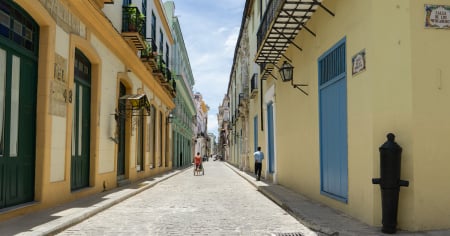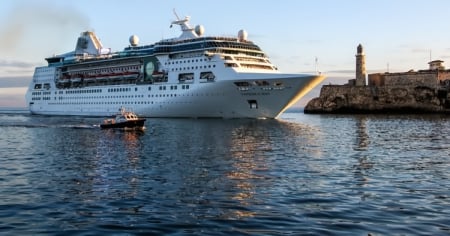Tourism in Cuba is experiencing its worst moment in decades. In 2024, the island welcomed 2.2 million international tourists, which represents a 9.6% decrease compared to the previous year and the lowest figure in the last twenty years.
Cubans have quickly reacted on social media upon learning the data from the National Office of Information and Statistics (ONEI), which shows a result far below the official target of 3.2 million visitors, later adjusted to 2.7 million.
Reactions to the tourism crisis are accompanied by complaints about the poor conditions of hotels, the deterioration of infrastructure, the lack of basic services, and the increasing insecurity in the country.
"The hotels are two stars fewer than they claim. With no good buffet, rooms that are often uncomfortable, issues with humidity, leaks, and little air conditioning," commented a user.
This is compounded by the lack of recreational and dining options outside of hotels: "Outside the hotel, you find nothing, neither a good restaurant nor a diverse recreational center for all ages."
The decline of tourism in Cuba is also reflected in the drop in visitors from traditional markets. Canada continues to be the leading source of tourists, with 860,877 travelers in 2024, followed by Russia (185,816), the United States (142,450), Germany (65,487), Spain (65,054), and Mexico (62,839).
However, countries like Spain and Italy recorded significant declines of 27.1% and 15.9%, respectively. Additionally, the arrival of Cubans residing abroad decreased by 17.8%.
The impact of the country's economic and energy crisis is evident in the tourism experience. "Cuba is the only place in the world where even tourists have a hard time," said another user on social media.
Among the main complaints are the instability of the electricity service, the scarcity of bottled drinking water, the lack of public transportation, and the increasing insecurity in the streets.
"Since you arrive at the airport, the workers are pressuring you for a 'little help,'" recounted another comment, referring to the widespread practice of soliciting tips for any service.
As the crisis worsens, expectations for improvement in the tourism sector are also diminishing. "And in 2025, with the shortages we have, there will be even less tourism or none at all," predicted a user. Another commented sarcastically: "To see ruins, it's better to go to Rome."
Frustration is widespread, and many Cubans believe that the lack of tourists is a direct consequence of the country's situation. "For the Cuban people, there is nothing, because everything is for the tourists, and now there is not even enough for them. No one should come to this country," stated another internet user.
In 2019, before the pandemic, the island welcomed 4.2 million tourists, while in 2023 it barely reached 2.4 million, and in 2024 the number was even lower.
The question that many are asking is whether Cuba will be able to regain its tourist appeal or if the crisis will continue to undermine a sector that, for 60 years, has failed to become the economic engine of the country, despite the millions in investments made by the regime in this area.
Frequently Asked Questions about the Tourism Crisis in Cuba in 2024
Why has tourism in Cuba declined in 2024?
The decline in tourism in Cuba in 2024 is due to multiple factors, such as the deterioration of hotel infrastructure, frequent power outages, competition from Caribbean destinations like Punta Cana and Cancun, and an unstable political and economic environment. These conditions have discouraged international tourists, negatively impacting the Cuban tourism sector.
What is the impact of the tourist crisis on the economy of Cuba?
The tourism crisis has deeply affected the Cuban economy, as tourism is one of the main sources of foreign currency income for the country. The decrease in the number of visitors has led to a significant drop in sector revenues, further exacerbating the fragile economic situation of the island.
What measures is the Cuban government taking to address the tourism crisis?
The Cuban government has attempted to diversify its tourism offerings, focusing on nature, cultural and historical tourism, as well as health tourism. However, the lack of a clear and effective strategy, combined with disproportionate investment in hotel infrastructure without solid demand, has hindered the recovery of the tourism sector.
How does the energy crisis in Cuba affect tourism?
The energy crisis in Cuba has negatively impacted the tourist experience, with frequent blackouts and shortages in hotels. This situation creates a negative perception among tourists and affects Cuba's image as a tourist destination, limiting its ability to attract visitors.
What are the projections for tourism in Cuba in 2025?
Official projections indicate that tourism in Cuba will continue its decline in 2025, with an estimated 2.6 million international tourists, a figure lower than previous targets and well below pre-pandemic levels. This reflects an uncertain outlook for the recovery of the tourism sector on the island.
Filed under:






